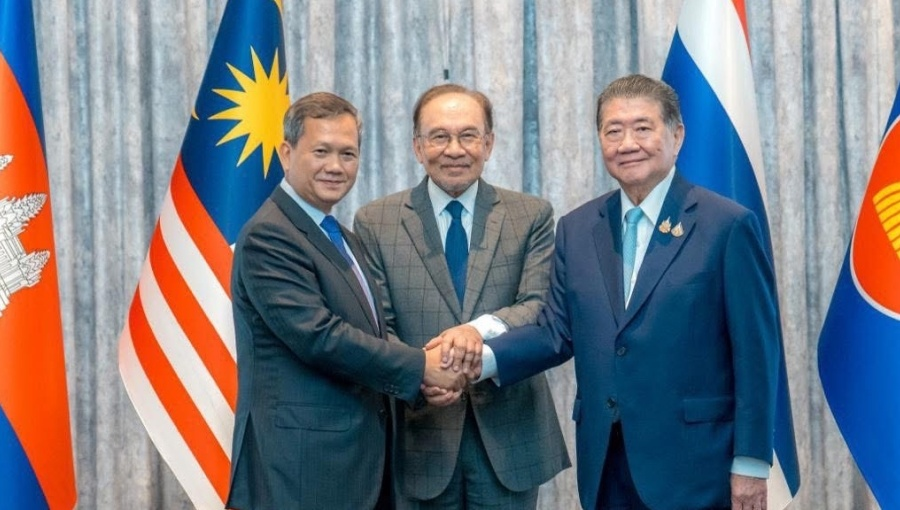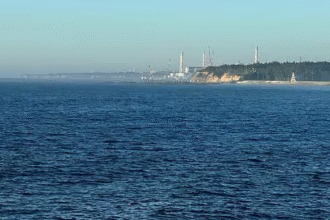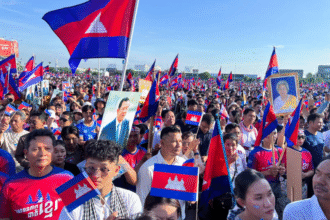After five days of escalating border violence that left dozens dead and thousands displaced, Cambodia and Thailand have agreed to an immediate and unconditional ceasefire, marking a major diplomatic success for Malaysia, with support from the United States and China.
At a high-level summit hosted by Malaysian Prime Minister Anwar Ibrahim, Cambodian Prime Minister Hun Manet and Thailand’s Acting Prime Minister Phumtham Wechayachai committed to halting military operations and pursuing a roadmap to restore peace and regional cooperation.
Malaysia Hosts Historic Peace Talks
The emergency talks were held at Anwar’s official residence and co-organized with US and Chinese diplomatic representatives. The US Ambassador to Malaysia Edgard Kagan and Chinese Ambassador Ouyang Yujing both played key roles in facilitating the dialogue.
In a joint statement, all parties confirmed that the ceasefire would take effect at midnight, with further military-to-military engagement scheduled for the following morning.
“Both leaders have agreed to restore calm and initiate dialogue to ensure this conflict does not escalate further,” the statement read. “The presence of the US and China underscores a global commitment to regional stability and diplomatic resolution.”
Key Outcomes of the Ceasefire Agreement
-
Ceasefire Start Time: Midnight, July 28, 2025
-
Regional Military Meetings: Set to begin at 7:00 AM today between military commanders from both sides
-
Upcoming Diplomatic Sessions:
-
Informal defense attaché talks led by ASEAN
-
A General Border Committee (JBC) meeting on August 4 in Cambodia
-
-
Monitoring & Enforcement: Malaysia, as current ASEAN Chair, will coordinate ceasefire verification with other ASEAN members
-
Ongoing Communication Channels: Direct lines between prime ministers, foreign ministers, and defense ministries of both countries will be reopened
Trump and Xi Acknowledge Role in Mediation
The US and China were quick to emphasize their roles in brokering the truce. President Donald Trump made personal calls to both leaders, threatening continued economic tariffs if the war persisted. His message reportedly had a decisive impact.
“This ceasefire agreement is a product of international diplomacy at its finest,” Trump posted on Truth Social. “I commend both sides for putting their people first.”
China’s Xi Jinping also received praise for maintaining open diplomatic channels with both Southeast Asian nations throughout the conflict.
Regional Leaders Applaud the Ceasefire
Prime Minister Hun Manet expressed gratitude to his Thai counterpart, as well as the Malaysian government and global powers for facilitating the breakthrough:
“This agreement allows both nations to begin restoring trust, rebuilding cooperation, and most importantly protecting civilian lives,” he said.
Thai Acting Prime Minister Phumtham reinforced Thailand’s intention to seek peace without compromising its sovereignty:
“We are ready to work in good faith. This agreement reflects our dedication to dialogue, not conflict.”
Malaysian Prime Minister Anwar praised the commitment of both nations, adding:
“This outcome showcases ASEAN’s capacity for principled diplomacy. Dialogue and mutual respect are the cornerstones of lasting peace.”
Conflict Background How the Clashes Began
Tensions ignited on July 24, when both sides accused each other of initiating military provocations near the disputed Preah Vihear temple area. Thailand claimed drone incursions by Cambodia, while Cambodia said Thai troops advanced into its territory without cause.
Thai forces reportedly used F-16 fighter jets and cluster munitions, causing significant casualties and damage to civilian infrastructure, including ancient temples and residential zones in Ekapheap village.
Damage, Displacement, and the Path to Peace
Though an official death toll has not been released, Cambodian sources confirm multiple military and civilian casualties. Thousands have fled their homes, triggering humanitarian concerns.
Retired diplomat Pou Sothirak praised the peace deal as a turning point.
“It took courage and wisdom from both prime ministers. The US and China deserve credit for keeping diplomatic pressure high,” he said.
However, reconciliation remains fragile. Documentation Centre of Cambodia Director Youk Chhang noted that long-term stability will depend on transparent cooperation and ASEAN’s ongoing involvement.
“Trust was broken,” he said. “The road ahead is long, and ASEAN must walk alongside both nations to help rebuild it.”






